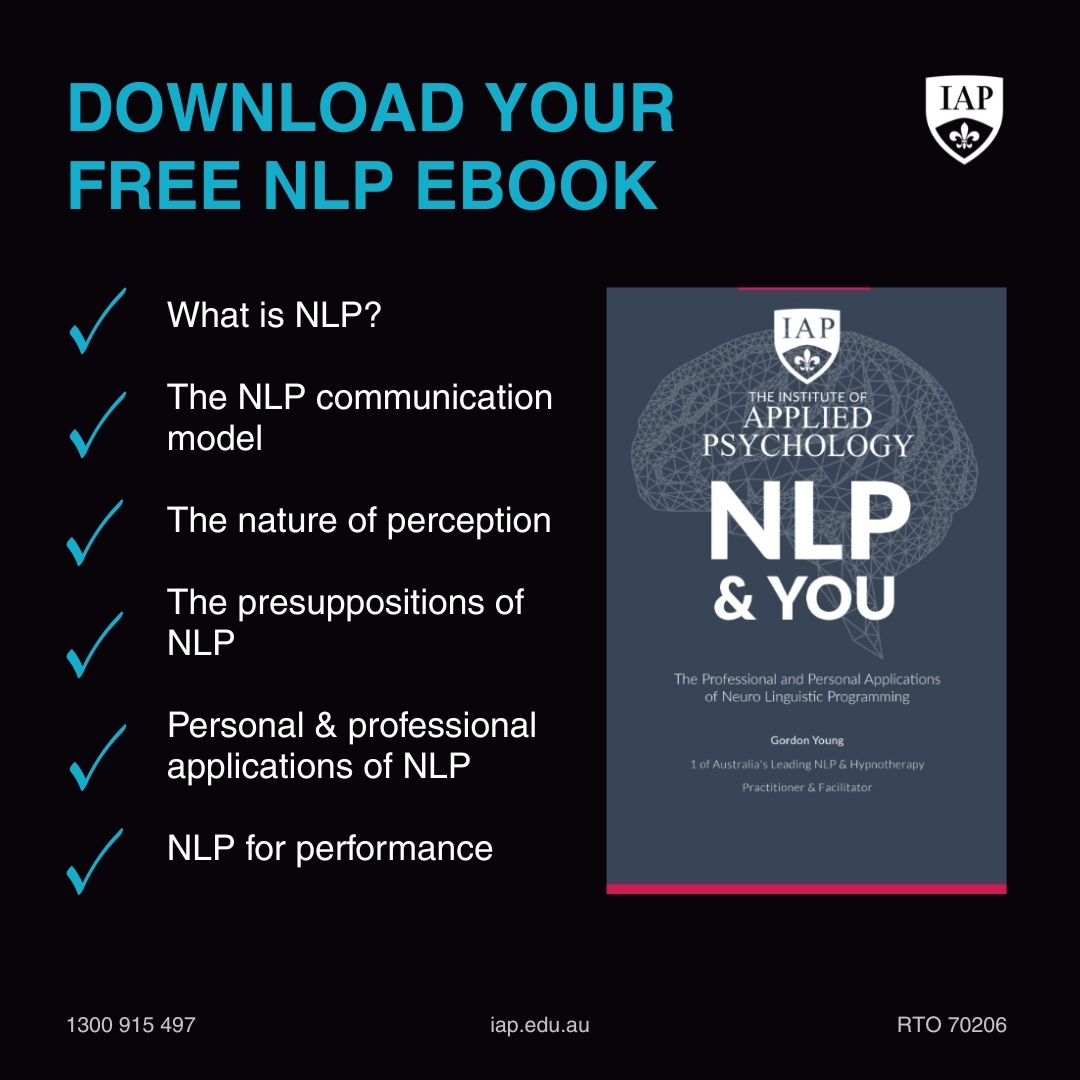Mind Over Matter: The Power of Hypnosis in Therapy
Regarding mental health and wellness, “mind over matter” is more than just a phrase—it’s a guiding principle of clinical hypnotherapy. By accessing the power of the subconscious mind, hypnotherapy helps people overcome challenges, break unhealthy patterns, and unlock their full potential.
Far from the stereotypes of swinging watches or mind control, modern hypnotherapy is a deeply personal and empowering experience. It’s about creating positive change by working with the mind, not against it. Whether you’re looking to explore a hypnotherapy career or simply curious about how it works, understanding the power of hypnosis can be truly eye-opening.
In this blog, we’ll dive into the rising demand for hypnotherapists, the steps to becoming a leader in this field, and how advanced techniques like Ericksonian hypnosis can transform lives by tapping into the profound connection between the conscious and unconscious mind.
The Growing Role of Hypnosis in Therapy
Let’s get one thing clear—hypnosis isn’t magic, but it can feel magical in how it helps people. It’s a research-supported therapeutic tool that leverages the mind-body connection to create real, lasting change by helping lead a client to a solution.
As more people face stress, trauma, and other mental health challenges, hypnotherapy is becoming a sought-after option. It’s personal, tailored, and effective for a range of issues, from reducing anxiety to overcoming fears. During a session, therapists guide clients into a deeply relaxed state where the subconscious mind can engage fully. This is where the real transformation happens—by uncovering root causes of behaviour, reframing negative thoughts, and planting seeds for lasting positive change.
Hypnotherapy’s rise reflects a bigger trend in mental health: a shift toward holistic, client-centred care. It’s not just about treating symptoms; it’s about helping people rediscover their strength and resilience.
Mind Over Matter: The Power of Hypnosis in Therapy
When it comes to mental health and wellness, “mind over matter” is more than just a phrase—it’s a guiding principle of clinical hypnotherapy. By accessing the power of the subconscious mind, hypnotherapy helps people overcome challenges, break unhealthy patterns, and unlock their full potential.
Far from the stereotypes of swinging watches or mind control, modern hypnotherapy is a deeply personal and empowering experience. It’s about creating positive change by working with the mind, not against it. Whether you’re looking to explore a career in hypnotherapy or simply curious about how it works, understanding the power of hypnosis can be truly eye-opening.
In this blog, we’ll dive into the rising demand for hypnotherapists, the steps to becoming a leader in this field, and how advanced techniques like Ericksonian hypnosis can transform lives by tapping into the profound connection between the conscious and unconscious mind.
Conscious vs. Unconscious Mind: Where the Magic Happens
At the core of hypnosis is the relationship between the conscious and unconscious mind. The conscious mind is logical, analytical, and sometimes stubborn. It’s the part of us that overthinks, second-guesses, and resists change.
The unconscious mind, however, is where the magic happens. It’s where habits are formed, emotions are stored, and beliefs take root. Hypnosis works by bypassing the conscious mind’s defences, allowing therapists to communicate directly with the unconscious mind to inspire change from within.
Watch this video where world-renowned Gordon Young helps explain the unconscious and the conscious mind.
Mastering the Mind: How to Become a Leading Hypnotherapist
If you’re considering a career in hypnotherapy, you’ll be entering a field that’s not only rewarding but also in high demand. The journey to becoming a skilled hypnotherapist is both personal and professional, blending science, empathy, and creativity. Here are eight key steps to guide you:
- Choose the most ethical course for you
Enrol in a government-accredited course like the 11271NAT Diploma of Clinical Hypnosis and Strategic Psychotherapy. This will help give you the skills, confidence, and credibility to practice effectively. - Understand the Mind’s Mechanics
Dive deep into how the conscious and unconscious minds work. - Focus on Personalised Care
No two clients are the same. Learn how to tailor your client sessions to the best results. - Refine Advanced Techniques
Ericksonian hypnosis is a must-learn method. Its use of subtle suggestions, metaphors, and confusion techniques can help break through resistance and help clients achieve meaningful results. - Commit to Lifelong Learning
Hypnotherapy is a constantly evolving field. Stay sharp by attending workshops and expanding your skills. - Build Trust and Empathy
The connection between therapist and client is everything. Listen actively, be empathetic, and create a space where your clients feel safe and understood. - Blend Therapy with Practical Goals
Therapy isn’t just about self-awareness; it’s about action. Help your clients apply what they’ve learned to their everyday lives for lasting results. - Grow Your Practice
Whether you’re starting a solo practice or joining a team, strong business skills—like marketing and client management—will set you up for success.
Ericksonian Hypnosis: A Gentle, Yet Powerful Tool
Dr. Milton Erickson revolutionised hypnosis by taking a completely different approach—one that’s gentle, collaborative, and deeply effective. Instead of giving direct commands, Ericksonian hypnosis uses storytelling, metaphors, and indirect suggestions to guide clients toward change.
How It Works
- Indirect Suggestions: Subtle cues allow clients to discover solutions on their own, making the experience empowering.
- Metaphors and Stories: Engaging narratives bypass the conscious mind’s resistance, making the process feel natural and relatable.
- Confusion Techniques: Ambiguous language or instructions distract the conscious mind, creating space for the subconscious to absorb suggestions.
Why It’s So Effective
Ericksonian hypnosis meets clients where they are, using their unique experiences and perspectives to craft a personalised journey. It’s not about fixing someone—it’s about helping them access the resources they already have within.
Applications in Therapy
- Fears and Phobias: Gently guiding clients to confront and overcome their fears.
- Habit Change: Helping clients quit smoking, improve their diet, or adopt new routines.
- Trauma Recovery: Reframing past experiences to reduce their emotional weight.
Incorporating Ericksonian techniques into your practice isn’t just about learning new skills—it’s about deepening your ability to connect with and help your clients in meaningful ways.
Why Hypnosis Is the Future of Therapy
As mental health awareness continues to grow, people are looking for therapies that don’t just scratch the surface but create real, lasting change. Hypnosis stands out for its unique ability to blend science, empathy, and creativity.
By investing in advanced training and mastering techniques like Ericksonian hypnosis, you can position yourself as a leader in this evolving field and make a meaningful impact on your clients’ lives.
Clinical hypnotherapy is more than a career—it’s a way to help people rediscover their strength and resilience. Whether you’re guiding clients through trauma recovery, helping them build confidence, or empowering them to make positive changes, the work you do as a hypnotherapist has the power to transform lives.
The mind holds limitless potential. Through hypnotherapy, you can help others unlock it—and in doing so, create a career that’s as fulfilling as it is impactful.
If you want to learn more about how you can become a clinical hypnotherapist, call us on 1300 915 497 or download the brochure here.








